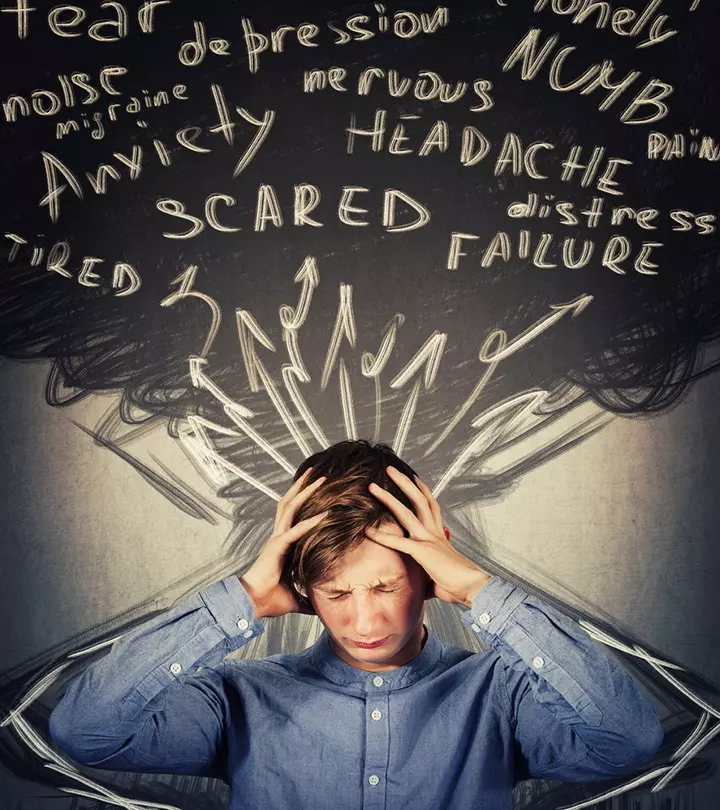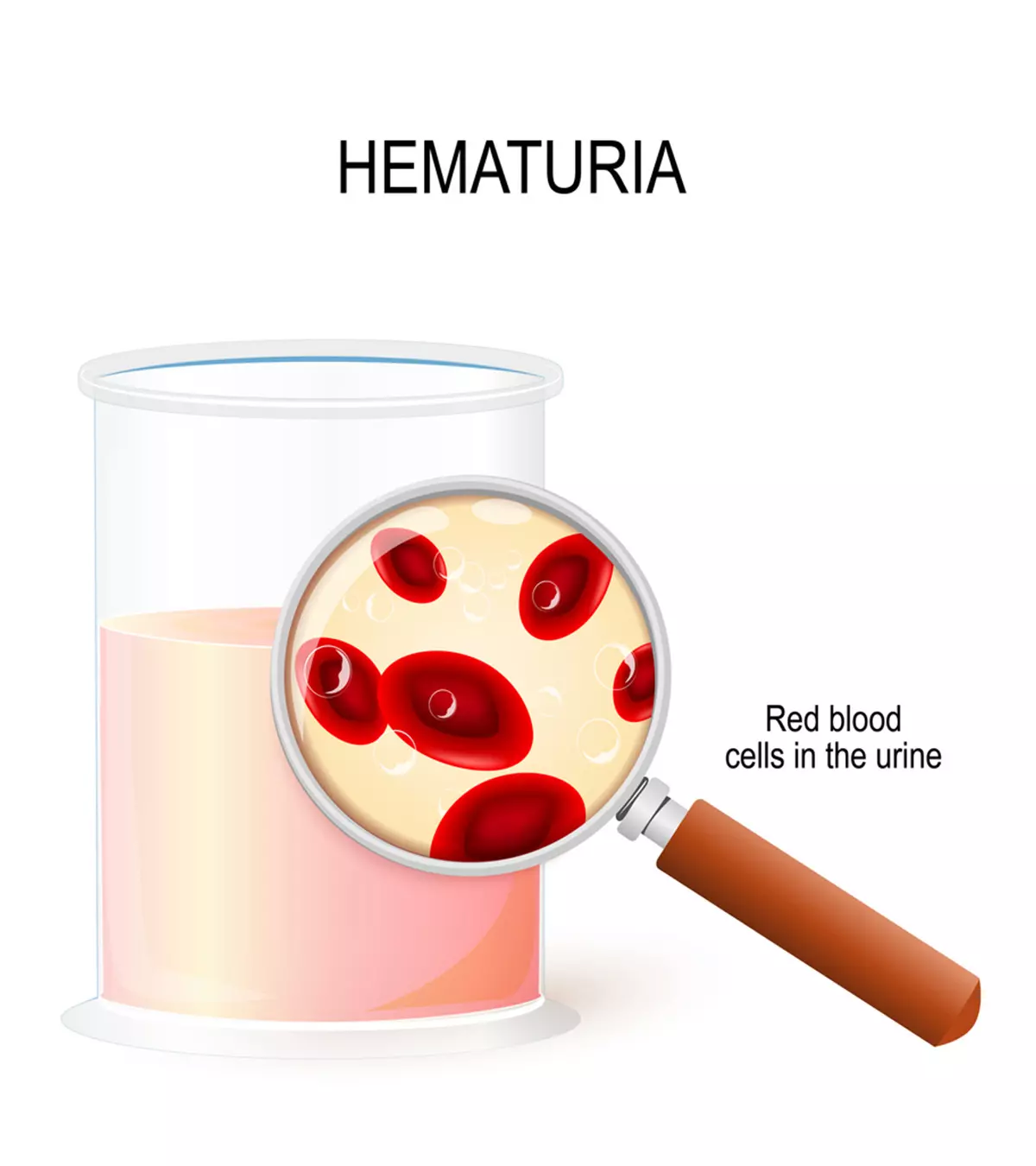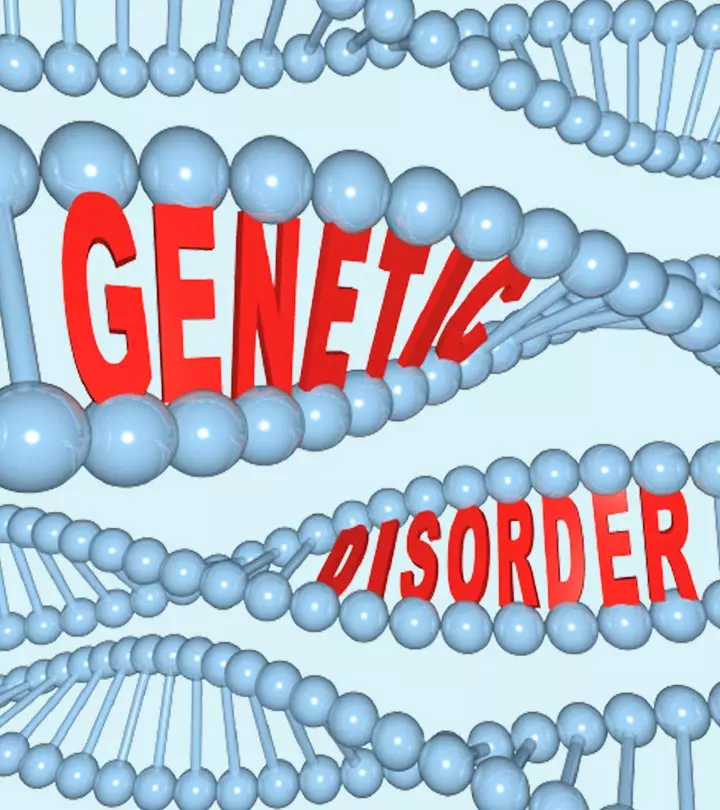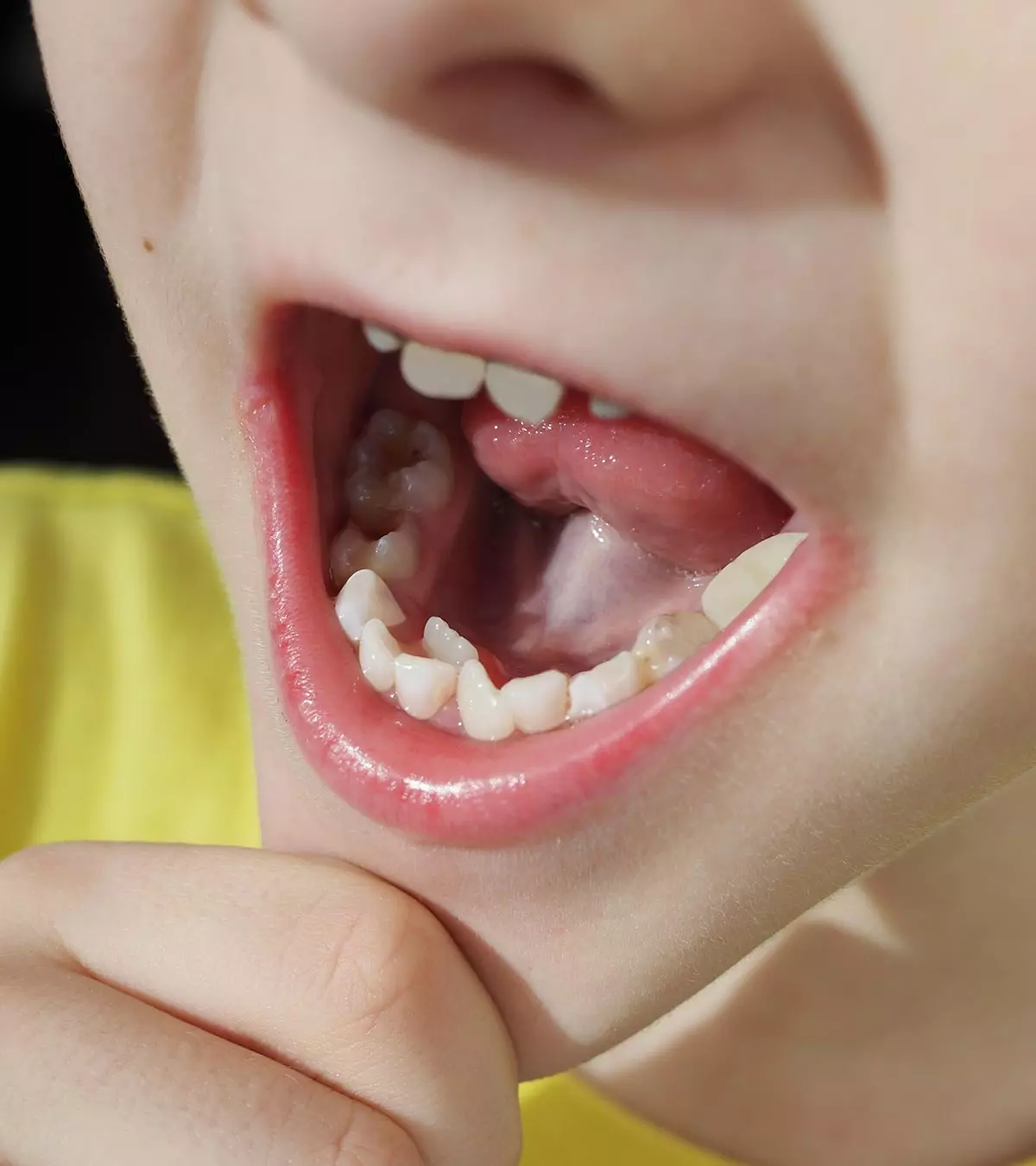
Image: Shutterstock
Aspergers in teenagers might affect their quality of life, including social and interpersonal skills. Asperger’s syndrome or Asperger’s disorder belongs to the group of Autism Spectrum Disorders (ASDs). According to the Centers for Disease Control and Prevention (CDC), autism spectrum disorder (ASD) impacts roughly 2.8% of all eight-year-old children, coming to about one in every 36 children(16). Although this syndrome is not a severe mental illness; children might find it hard to communicate, act, and show repetitive behavior if left untreated. However, they will have good language and cognitive skills (1). Read on to know about the symptoms, causes, management, and long-term outlook of Asperger’s syndrome in teenagers.
Key Pointers
- A teen with Aspergers may avoid social interactions, be sensitive to criticism, and use more non-verbal communication.
- Although Asperger’s falls under autism spectrum disorders (ASD), it is not a severe illness.
- It is diagnosed by a medical professional by observing the teen and after conducting screening tests.
- The treatment includes medication and other alternative therapies to holistically improve the teen’s life.
What Does Asperger’s Look Like In Teenagers?
To an untrained individual, a teen with Asperger’s may come across as a neurotypical child behaving differently. Teens with this disorder usually like to follow a monotonous lifestyle and hate any changes in their routines. Also, they may consider themselves a misfit among their peers and show disinterest in interacting with others.
They seem to make little or no eye contact, have few facial expressions, and come across as socially awkward as they may fail to understand conversations, gestures, or sarcasm. A teen with Asperger’s syndrome usually has less severe symptoms than a teen with autism, and they also don’t usually have speech delays (2).
Aiden Riley, a blogger who has Asperger syndrome, shares about his life as a teenager, which was years before the proper diagnosis was made. He says, “When I hit my late teens, my insecurities caused me to query myself.
Questions formed in my mind: why do I struggle to feel like I belong? Why do I feel the need to run and hide and be alone? Why did I feel like the odd one out in school?I began to do research and found stories written by other aspies (those with Asperger syndrome) who were in similar situations. I came across symptoms that painted an exact illustration of myself. The more I read, the more I realised that it was me. It wasn’t until the age of 25 when I was diagnosed and all the relief and frustration of not knowing came pouring out (i).”
What Are The Symptoms Of Asperger’s Syndrome?
The signs and symptoms of Asperger’s syndrome generally appear in early childhood and develop progressively in adolescence. Asperger’s symptoms may vary among teenagers; however, some common symptoms include (1) (3) (17) :
- Avoiding social interactions and friendships.
- Sensitivity to light and sounds.

- Sensory processing difficulties
- Preferring nonverbal communication or being unable to converse despite having good language skills.
- Abnormal eye contact, body language, and facial expressions.
- Repeating behaviors, such as hand or finger flapping.
- Having a fixed routine and interests, such as not wanting to eat particular foods.
- Weak executive functioning skills
- Inability to empathize with others or comprehend typical social norms and instructions.
- Frequent aggressive or eccentric behavior – being frustrated if things don’t happen their way.
- Being emotional about things said to them and being overly sensitive to criticism.
- Difficulty making friends. Andy Whyte, a blogger, shares about living with old brother James, who has Asperger syndrome. He says, “James has Asperger Syndrome and a number of other complications relating to a deficiency with his 18th chromosome known as ‘18q Disorder’. He further shares about their teen years, saying, “As he matured into his teens, he had a lot of issues with tempers. He would flip, and nothing would work to calm him down. They were intense tantrums, and he would usually end up storming to his room. He would ALWAYS come down a little later and apologize and ALWAYS feel guilty and say he didn’t understand why he had got so mad (ii).”
Recent studies also suggest Asperger’s as a type of autism; however, it is usually associated with other conditions, such as motor coordination disorders. It also increases one’s risk of developing schizophreniaiA serious mental disorder where the person confuses the real world with the imaginative world due to disruption in their though process. and major depressive disordersiAlso known as clinical depression, it is a mental health condition that makes the person have persistent feelings of sadness and loss of interest. (18).
What Causes Asperger’s Syndrome In Teenagers?
The exact cause of Asperger’s syndrome is not known. However, experts believe that genetic, neurobiological, and environmental factors play a role.
In addition, Pregnancy-related aspects such as older parents during conception, chromosomal abnormalities such as fragile X syndromeiA genetic intellectual disorder that leads to learning disabilities, cognitive impairment, anxiety, and hyperactiveness , and medications taken by the mother for anxiety or mood disorders might also increase a child’s risk for Asperger’s syndrome (4).
 Did you know?
Did you know?Several genes are associated with Asperger’s syndrome, with the major one being the GABRB3 gene, which is also associated with other Autism spectrum conditions (5). Research is ongoing for understanding the different genetic variations and environmental factors that are potential triggering factors of this syndrome.
Note: Asperger’s syndrome is not caused due to bad parenting, immunization, or other social circumstances.
When To See The Doctor?
You may consider taking your child to a qualified health professional (child psychologist or speech pathologist) if they show any signs of autism or have difficulties in (6)
- Making friends of their age or speaking or playing with them.
- Communicating; they seem to be awkward and lost.
- Understanding others’ perspectives and feelings.
- Understanding the nuances and depth of a language.
 Research finds
Research findsHow Is Asperger’s Syndrome Diagnosed?

Diagnosis of Asperger’s syndrome is made by a medical professional experienced in studying autism spectrum disorders. While the symptoms of Asperger’s may appear in early childhood between the ages of 1-3 years, the diagnosis is often delayed until pre-teen years and later (17). It is based on thorough observation and assessment of the teen’s developmental history. In addition, the teen may be questioned to learn about their learning and social abilities, movement skills, and special interests. The doctor or the psychiatrist would also give questionnaires and perform assessment tests, including the Social Communication Questionnaire (SCQ) and Ritvo Autism Asperger Diagnostic Scale-Revised (RAADS-R) (a self-scoring ASD screening test) (17).
The evaluation can take a few years and is usually done at home, school, or in a playroom setup (3). In addition, a doctor may conduct standardized screenings such as autism-specific screening tests and blood or genetic tests to look for any underlying inherited disorders such as fragile X syndrome or hereditary metabolic disordersiA set of hereditary disorders that interfere with the body’s metabolism, usually occurring due to the absence of a hormone or enzyme (7). The doctor may also evaluate the teen for other comorbid conditions and they may also prescribe neuroimaging tests like MRIiMagnetic resonance imaging is a medical imaging technique that uses strong magnetic field to produce an image of the organs of the body. and ECGiElectrocardiogram, it is a simple, quick, and non-invasive test to record the heart's electrical activity (17).
What Are The Treatment Options For Asperger’s Syndrome?
A combination of medications and therapies to improve social, behavioral, and communication skills is proven to help teens with this condition.
- Medications: Risperidone and aripiprazole are FDA-approved drugs given to reduce the symptoms and control self-injurious behaviors; however, these are also used for managing the symptoms, such as aggression, irritability, and self-injury for a short term (17). Selective serotonin reuptake inhibitors (SSRIs), such as Fluoxetine and Paroxetine are effective in reducing repetitive behaviors. Mood stabilizers and stimulants help control hyperactivity and eccentric behavior in teens (7) (8).

These drugs must be taken under the supervision of your child’s psychologist or doctor, as they pose a risk of side effects.
- Alternative therapies: Cognitive behavioral therapyiA type of talk therapy in which a person is trained to manage mental issues by turning their negative thoughts into positive ones , social skills training, family therapy, and applied behavior analysis-based therapies are recommended to help the teen develop coping strategies, enhance their interpersonal skills, and learn independent living skills such as punctuality and grooming.
- Other therapies include intravenous immunoglobulin therapy, individualized educational programs, auditory integration training, and specialized diet therapy (8). These therapies are not widely used as they are still being researched. Hence, you may consult the child’s physician before proceeding with any of these therapies to provide a personalized treatment regimen according to the child’s requirements.
 Quick tip
Quick tip
Support Strategies For Parents
Family, including parents and siblings, play a significant role in the management of Asperger syndrome. Moreover, the way you interact with them can majorly affect their behavior. Here are some pointers that you should keep in mind when helping your child with Asperger’s syndrome (19):
- Establish a consistent routine to provide a sense of stability and security.
- Encourage open communication and help them express their feelings and experiences.
- Teach them how to express anger and other emotions without being too aggressive.
- Model how to behave in different social settings and interact with people of different ages.
- Provide opportunities for them to socialize.
- Use positive reinforcement to encourage independence, self-care, and respectful behaviors during social interactions.
- Participate in support groups and organizations to learn how to help your child from other parents’ experiences.
- Inform and teach others, including school, neighborhood, community, and their friends, about Asperger syndrome.
Is There A Cure For Asperger’s Syndrome?
There is no cure for Asperger’s Syndrome (3). However, timely diagnosis can support individuals in taking necessary steps to avoid potential risks. Moreover, with a vast range of treatment options available, it is now possible to treat and manage the condition. Additionally, education on the matter can help individuals better understand its associated challenges.
Frequently Asked Questions
1. Can Asperger’s get worse in the teenage years?
There is a lack of sufficient information to prove this hypothesis. Nevertheless, if the teen has Aspergers along with other mental health problems or psychiatric conditions, their symptoms may increase (10).
2. How should I discipline my teenager with Asperger’s?
Maintain healthy communication and positive relationships with your teen. Set realistic and clear rules and tell them the consequences of following or not following them. Have a fixed routine for all their habits and interests. Educate them about the essential skills to deal with difficult situations. Remember to reward appropriate behaviors for reinforcing their strengths and self-esteem (11).
3. Does Asperger’s affect the physical appearance of teenagers?
Although it is not well known whether Asperger’s syndrome could impact the physical appearance of teens, one study discovered that boys with autism spectrum disorders showed distinctive facial characteristics compared to their typically developing peers (12).
4. What are some effective communication strategies I should be aware of?
It is important to be clear and direct with your teen, avoid sarcasm, and give them time to process information. Visual aids can also enhance understanding.
Asperger’s in teens is a type of Autism spectrum disorder (ASD) characterized by communication and behavioral problems. Teens with Asperger’s struggle to fit in their social circle, lead a monotonous life, and are disturbed by slight changes to their routine. The symptoms of this disorder include being sensitive to light and sounds, avoiding social interactions, eccentric behavior, and repeating behaviors. Though there is no cure for this condition, consult your healthcare provider immediately as you notice any signs in your teen. This will ensure that they receive an accurate diagnosis of such childhood disorders and the appropriate treatment to aid their transition into adulthood.
Infographic: Tips For Making Teens With Asperger’s Syndrome Independent
Teenage is the time when all individuals aspire for independence and often have conflicts with their parents. A teen with Asperger’s syndrome should be trained to commute and survive independently. You may gradually let them do things independently from a young age while ensuring their safety. Go through the infographic to learn some tips to balance the risks while letting independence to your teen with Asperger’s syndrome.
Some thing wrong with infographic shortcode. please verify shortcode syntax
Explore the intricacies of Asperger’s Syndrome, a unique facet of autism influencing social interactions and communication. Delve into its challenges and the potential for gratifying experiences through an enlightening video.
Personal Experience: Sources
MomJunction articles include first-hand experiences to provide you with better insights through real-life narratives. Here are the sources of personal accounts referenced in this article.
i. Hello, My Name is Aiden, and I Have Asperger’s Syndrome;https://medium.com/artfullyautistic/hello-my-name-is-aiden-and-i-have-aspergers-syndrome-ebb0c189d773
ii. Asperger Syndrome and me;
https://meddicc.medium.com/asperger-syndrome-and-me-8ba29bbcf130
References
- Asperger’s Syndrome.
https://www.healthdirect.gov.au/aspergers-syndrome - Asperger’s Syndrome.
https://www.nationwidechildrens.org/conditions/aspergers-syndrome - Asperger’s Syndrome.
https://www.healthywa.wa.gov.au/Articles/A_E/Asperger-syndrome - Asperger’s Syndrome.
https://familydoctor.org/condition/aspergers-syndrome/ - Varun Warrier et al.; (2013); Genetic variation in GABRB3 is associated with Asperger syndrome and multiple endophenotypes relevant to autism.
https://www.ncbi.nlm.nih.gov/pmc/articles/PMC3903107/ - Autism and adults.
https://www.betterhealth.vic.gov.au/health/conditionsandtreatments/autism-spectrum-disorder-and-adults - Stephen Brian Sulkes, MD Autism Spectrum Disorders.
https://www.merckmanuals.com/home/children-s-health-issues/learning-and-developmental-disorders/autism-spectrum-disorder?autoredirectid=23824 - Melissa DeFilippis and Karen Dineen Wagner; (2016); Treatment of Autism Spectrum Disorder in Children and Adolescents.
https://www.ncbi.nlm.nih.gov/pmc/articles/PMC5044466/ - Susan L. Hyman, et al.; (2025); Myers, Identification, Evaluation, and Management of Children With Autism Spectrum Disorder.
https://pediatrics.aappublications.org/content/145/1/e20193447 - B Mirkovic and P Gerardin; (2019); Asperger’s syndrome: What to consider?
https://pediatrics.aappublications.org/content/145/1/e20193447 - 15 Behavior Strategies for Autistic Children.
https://ibcces.org/blog/2016/07/15/behavior-strategies/ - Kristina Aldridge et al., (2011); Facial phenotypes in subgroups of prepubertal boys with autism spectrum disorders are correlated with clinical phenotypes.
https://pubmed.ncbi.nlm.nih.gov/21999758/ - Autism Statistics and Facts
https://www.autismspeaks.org/autism-statistics-asd - Alexandra C. Kirsch et al. (2019); Association of Comorbid Mood and Anxiety Disorders With Autism Spectrum Disorder.
https://jamanetwork.com/journals/jamapediatrics/article-abstract/2755414 - Depression and low mood: autistic teenagers.
https://raisingchildren.net.au/autism/health-wellbeing/mental-health/depression-teens-with-asd#strategies-to-help-autistic-teenagers-with-depression-or-low-mood-nav-title - Autism Prevalence Higher According to Data from 11 ADDM Communities.
https://www.cdc.gov/media/releases/2025/p0323-autism.html - Seyed Alireza Hosseini and Mohammed Molla; (2025); Asperger Syndrome.
https://www.ncbi.nlm.nih.gov/books/NBK557548/ - Sadiq Naveed et al. (2025); Genetic networks suggest Asperger’s syndrome as a distinct subtype of autism spectrum disorders.
https://www.sciencedirect.com/science/article/pii/S1750946724001594 - Vidhi Motlani et al. (2025); Asperger Syndrome (AS): A Review Article.
https://pmc.ncbi.nlm.nih.gov/articles/PMC9742637/
Community Experiences
Join the conversation and become a part of our nurturing community! Share your stories, experiences, and insights to connect with fellow parents.
Read full bio of Dr. Neha Bhave Salankar
Read full bio of Vidya Tadapatri
Read full bio of Dr. Ritika Shah
Read full bio of Apoorva K
















